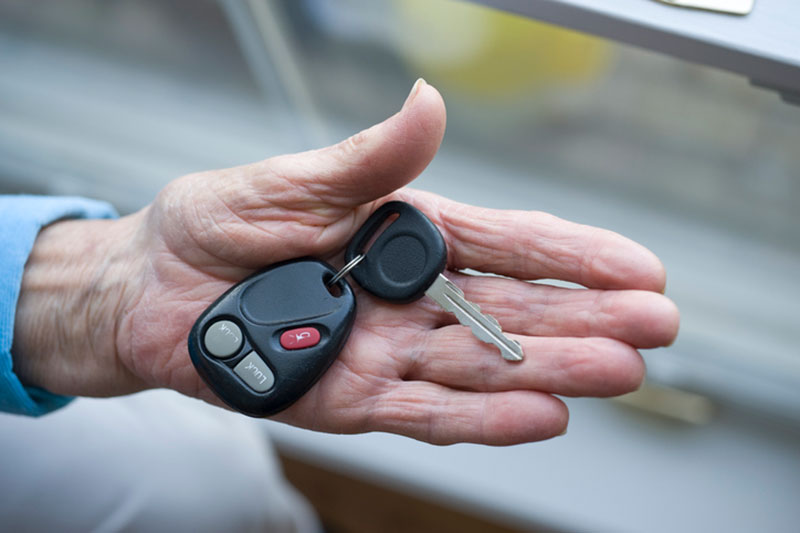
Senior independence is vital as a person ages, but when it’s time to give up the car keys, maintaining that freedom can be a challenge.
It’s a discussion no one wants to have with senior parents, but one that will most likely be inevitable sooner or later. To be able to drive wherever and whenever we decide is an essential component to our feeling of freedom, yet as we age, operating a vehicle can be hazardous for many different reasons: decreased reflex and response times, cognitive problems, poor vision, and more. If you are starting to have worries about an older loved one’s capacity to continue to drive safely, it is time to talk about giving up driving, along with strategies to maintain senior independence.
How Will You Know That It’s Time for an Older Adult to Quit Driving?
There are certain warning signs to look out for that indicate the necessity for a senior to stop driving, including:
- Becoming lost on familiar driving routes
- Missing traffic signals or signs
- Not yielding or cutting off other drivers
- Making wider turns than necessary
- Not staying between the lines
- Appearing to be tired or inattentive
- Having trouble judging distances
- Becoming easily agitated, frustrated, or angry
- Not using mirrors or turn signals accordingly
How Can You Initiate the Discussion About Giving Up the Keys?
First and foremost, try to avoid correcting or criticizing the senior’s mistakes while they are driving, because this can cause more unsafe behaviors. After the car is parked, calmly talk about specific instances of concern that you noticed as a starting point to the larger discussion in regards to the need for the person to stop driving.
is the following tips are a good way to move the conversation ahead and to make sure you are being heard and taken seriously. Use the conversation to reduce the senior’s stress, and to provide a solution that will empower the senior’s independence.
Key Points to Remember:
- Solicit help from others that the senior knows and trusts, either in offering their own instances of concerns or perhaps in joining you for the conversation.
- Steer clear of shaming or blaming the senior.
- Keep your temperament calm and encouraging so you do not come across as angry.
- Use specific instances of worrisome behaviors.
- Let the individual know you’re in this together, and that together you’ll be able to arrive at an answer that ensures safety for the senior as well as other drivers and pedestrians.
- Expect to see opposition and defensiveness, and that it may take multiple conversations.
If the individual remains insistent about continuing to drive, arrange for a checkup and consultation with the doctor. There could be side effects from medications, vision problems, or other health-related reasons for driving issues that could be corrected; or, the physician may have more influence in convincing the senior to give up the keys.
How Can a Senior Stay Independent Without Being Able to Drive?
Thankfully, there is a simple solution that enables an older adult to get around as they wish: a professional in-home caregiver from Home With You Senior Care, the experts in senior care in Ellicott City, MD and a provider of home care throughout the surrounding areas.
Our care providers are available to offer transportation and accompaniment whenever and wherever a senior need to go, including:
- Doctor appointments and procedures
- Running errands and shopping
- Social visits
- Going out to lunch or for a walk in the park
- Hair and nail appointments
- Exercise or any other classes
- Even vacations or longer-distance outings
The best part? A care provider offers friendly company and conversations that make any excursion more enjoyable than going alone!
Reach out to our in-home care experts at 410-756-0959 to ask about our transportation services for seniors, and help a senior you love live their best life, safely and happily.
